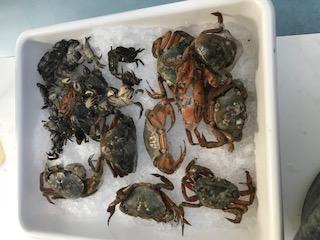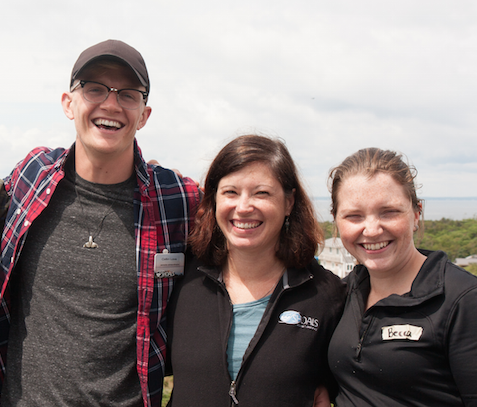Course Dates
June 1, 2026 to June 15, 2026
Prerequisites
One semester of college biology or equivalent; or by permission of instructors. One semester of ecology preferred, but not required.
Course Description

The course will explore invasive species including class lectures, paper discussions, species profiles, field observations, and guided and open inquiries. Major assignments/assessments will include student-led paper discussions, an invasive species profile, a guided inquiry report, submission of a vouchered specimen collection, a lab identification practical, a content/concept final exam, and an open inquiry and presentation.
Learning goals and objectives for this course include:
- Students will identify taxa of invasive species using scientific keys and descriptions and prepare formal voucher specimens during their guided inquiries.
- Students will evaluate the ecological, evolutionary, and management importance of invasive species.
- Students will use fundamental principles, concepts, and theories in invasion biology in discussions of primary literature.
- Students will pose original research questions and test fundamental ecological and evolutionary concepts using current scientific literature to develop and hone ideas for student-led open inquiries.
- Students will design and carry out original research on the invasive species ecology, evolutionary biology, or management questions they develop for their open inquiries.
- Students will organize, synthesize, and effectively communicate the scientific data that they collect during their open inquiry projects.
Course Numbers
Cornell: BIOSM 3340 (3 Credits)
UNH: MEFB 720 (4 Credits)
Faculty
Dr. April Blakeslee

Associate Professor, Biology Department, East Carolina University
Dr. April Blakeslee is a marine ecologist and conservation biologist, focusing on invasion biology, parasite ecology, evolutionary ecology, and biogeography. As an Assistant Professor in the Biology Department at East Carolina University (Greenville, NC), she has developed a diverse research program involving undergraduate and graduate students. Specific to parasites, Dr. Blakeslee explores global distribution patterns and biogeography, population genetics and population ecology in native and non-native populations, community ecology and host-parasite interactions of native and non-native organisms (including host behavior, physiology, and genetics), and parasites as conservation tools. She has been performing research at SML on marine parasitology and disease for the past 15 years.
Dr. Amy Fowler

Assistant Professor, Department of Environmental Science and Policy, George Mason University
Dr. Fowler’s general research interests and experiences include global aquatic invertebrate species patterns, biodiversity, phenotypic plasticity, parasitology, and community and population level interactions of aquatic invertebrates, especially those concerning invasions. She has experience working in freshwater, estuarine, and marine systems both in the United States and globally. Currently, her laboratory at GMU has three main topics of study: host-parasite interactions, invasion dynamics and processes, and natural resource management of commercially and recreationally important aquatic invertebrate species.
